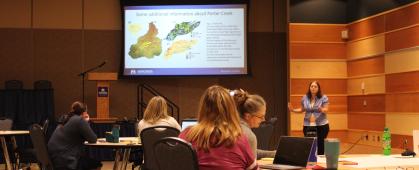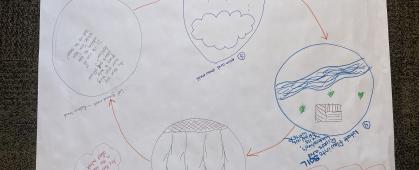A recent publication from the Natural Resource Social Science team highlights the challenges facing rural communities in the arena of public water systems—namely, the locally-managed infrastructure that delivers domestic water to homes in settled areas like small towns and cities. The context of population and economic decline (perceived and actual) makes planning for built infrastructure upgrades with lifespans of several decades extremely difficult–and, quite reasonably, a potentially questionable investment from a local decision-maker’s perspective.
Using a series of interviews conducted in six rural communities in the Judith River watershed as well as in-depth research into local documents and datasets about drinking water systems, the study explores the question of whether existing policies to address public water system challenges result in a net benefit or cost to community from the perspective of community resilience. (Do the regulations and processes associated with maintaining safe drinking water standards make small rural communities more or less resilient?) The study identifies discouraging trade-offs inherent to how local context and the policy environment interact in an area like the JRW. The authors observe problems around overbuilding and associated fiscal risks; inefficient use of local resources; and elongated timelines which can prolong public health risks from contaminated water. Building on rural development research which emphasizes resilience constraints associated with limited administrative capacity in civic governance, the paper identifies that limited institutional capacity in rural JRW communities also diminished decision-making autonomy and a sense of self-determination among local leaders. During a residency in Washington DC this spring, the lead author had the opportunity to share findings from this study with officials at USDA and the offices of each member of the Montana delegation, as well as with the Brookings Institution and Rural Community Assistance Partnership.

